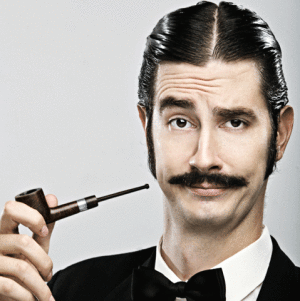
Is Our Concept of “Well-Read” Elitist?
For quite a while now, I have been thinking about what it means when we say that someone is well-read. To some, a well-read person is someone who has read many books written by a wide range of authors. To others, a well-read person is someone who has read the “classics” which, for the most part, is the literary canon that is predominately white and male. For the most part I’d like to think that I’m a well-read individual. I can recommend books to certain people depending on their interests, whether it be romance, existentialism, madness, free will, or even experimental prose. But my real specialities are not within Western literature. I studied nineteenth century Russian lit and postwar modern Japanese lit in college. I can recount whole passages from Dostoyevsky and Mishima like it’s nobody’s business. But not many people I’ve come across read Mishima or Kobo unless they took a class on Japanese literature.
When I come across most traditionally well-read people, they have read Paradise Lost, Pride and Prejudice, The Old Man and The Sea, and even Ulysses. With the exception of Ulysses (which I stopped out of sheer boredom) I haven’t read any of the other famous works. And yet there’s this gnawing feeling inside me that I must read them, that it’s an obligation to do so if I want to be considered well-versed in literature. Even as a kid, I never liked Great Expectations, A Separate Peace, The Lord of the Flies, and especially not Catcher In The Rye. I resonated with neither the story line nor the characters.
The short answer to my cognitive dissonance is that I shouldn’t give a single care what others think. I like what I like and that should be the end of it. But when you spend time in the Academy and converse with other educated and socially mobile people, you tend to feel out of place when others are discussing James Joyce- yet another author who doesn’t tickle your fancy. Rather than stating an unpopular opinion, you’d rather remain silent because it would be too overwhelming of a debate since you’re already the minority.
But in this silence, I have discovered another aspect of these literary discussions: classism. In Ferguson, the municipal public library was close to being in dire straits had it not been for Ashley Ford of The Harnisch Foundation who spearheaded efforts to donate over $350,000 to the facility. Many libraries across the country are in danger of being shut down and then what? What will happen to the children who eventually go to college and have not read the classics yet but may have found inspiration from older and more obscure works that none of their colleagues have read? Can they still be considered well read, too?
Perhaps I am simply rambling about the ways in which class projects its influence on dialogue about literature, but let’s face it: we place value in certain works more than others. Not many people may have read Things Fall Apart, but they have read and will most likely praise Romeo and Juliet. This is not to take away from either of the two works, but it is arguable that because of this imbalance, our discussions are the results of inequality. Therefore, this image of a well-read person becomes compromised. The very concept of being “well-read” begins to crumble because the focus is centered on a particular kind of literature being created in a particular part of the world, i.e., the West.
____________________
Get your Read Harder mug on.















